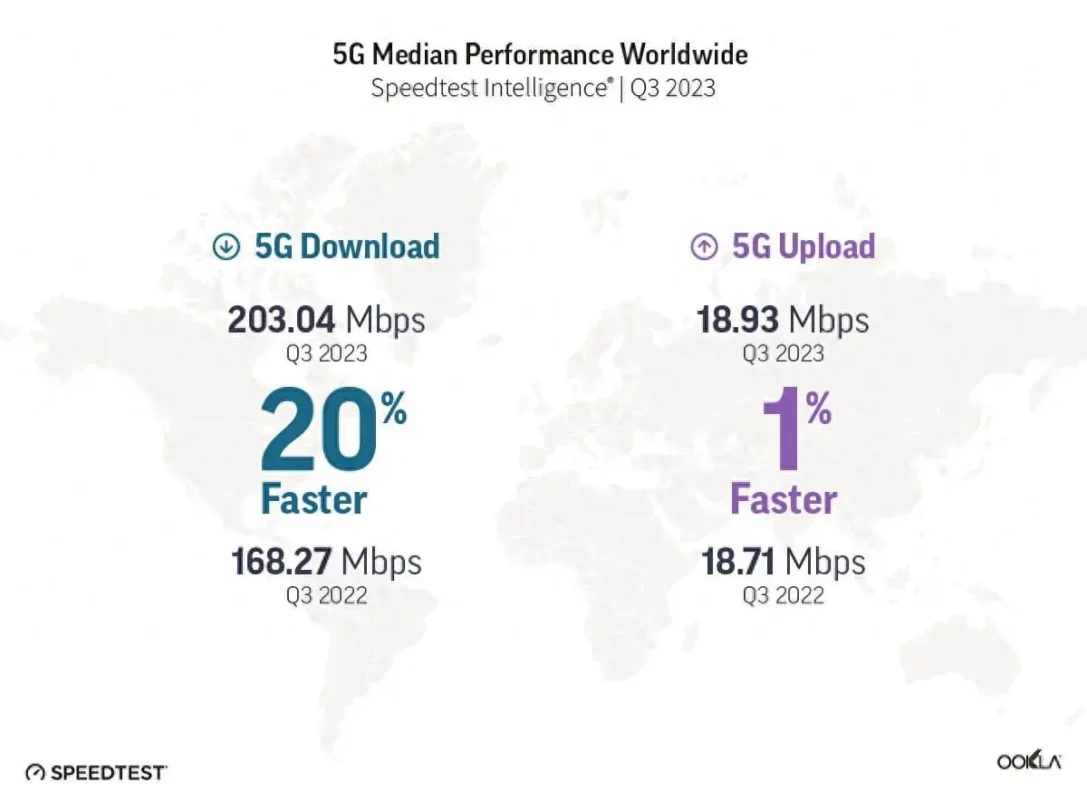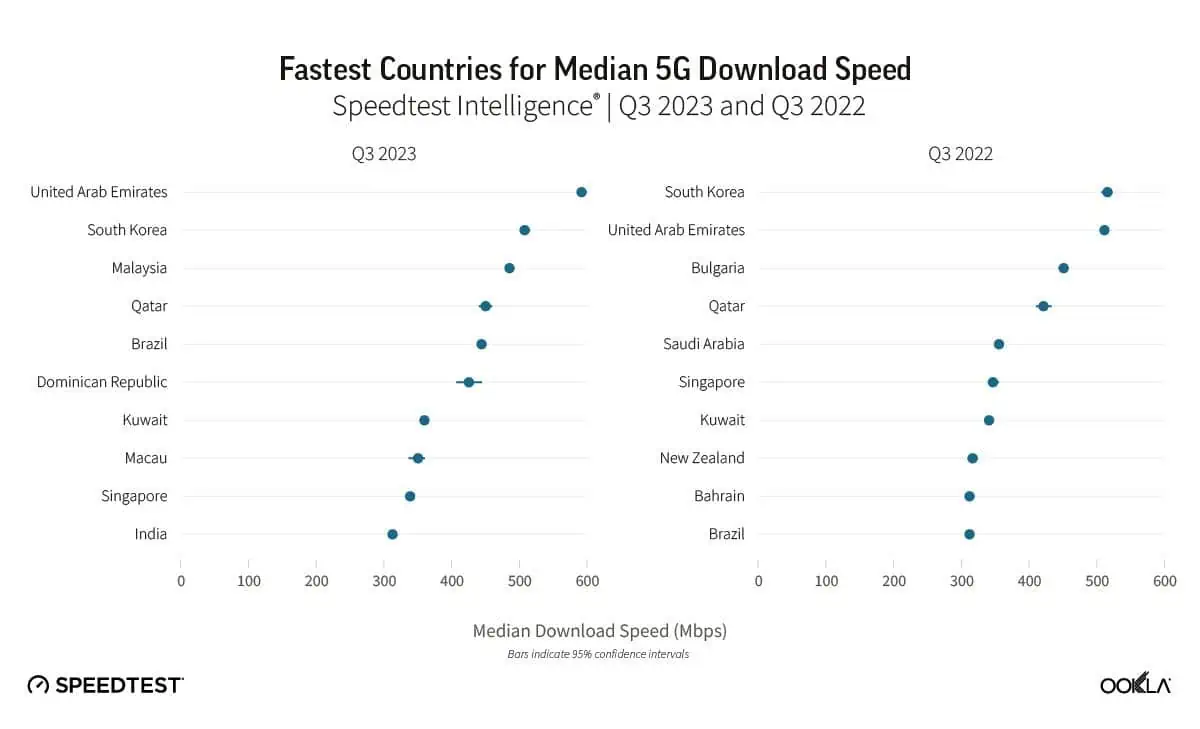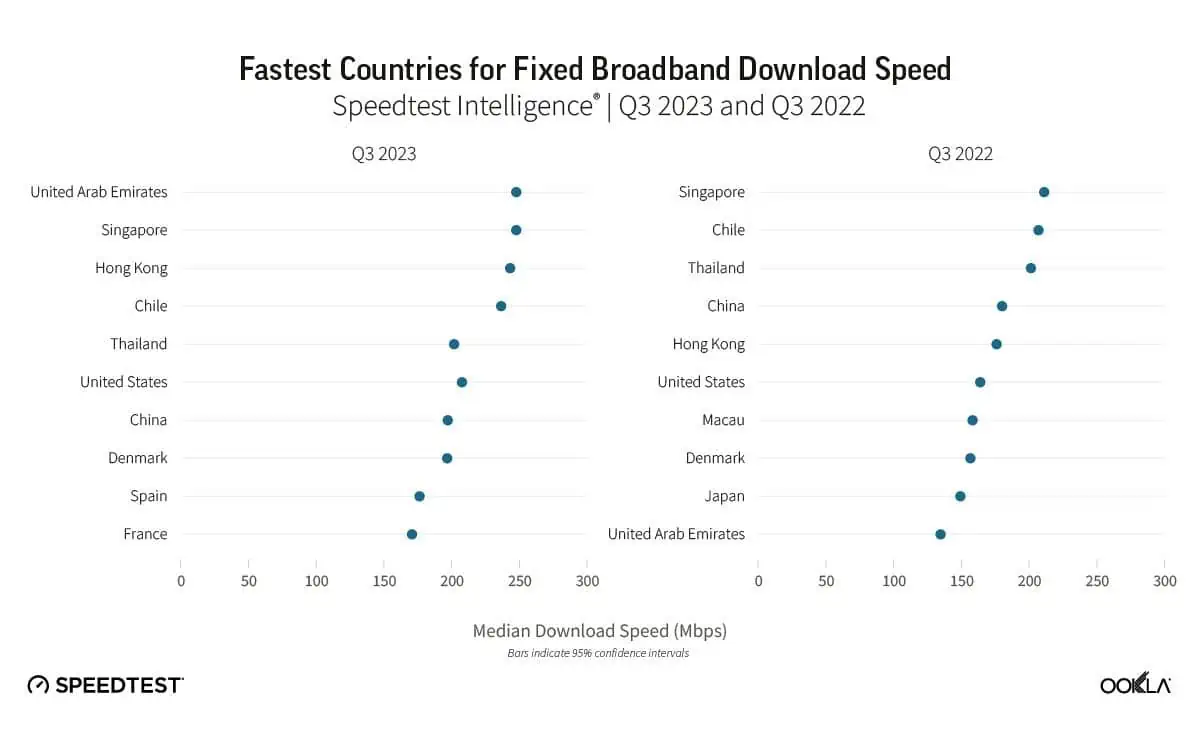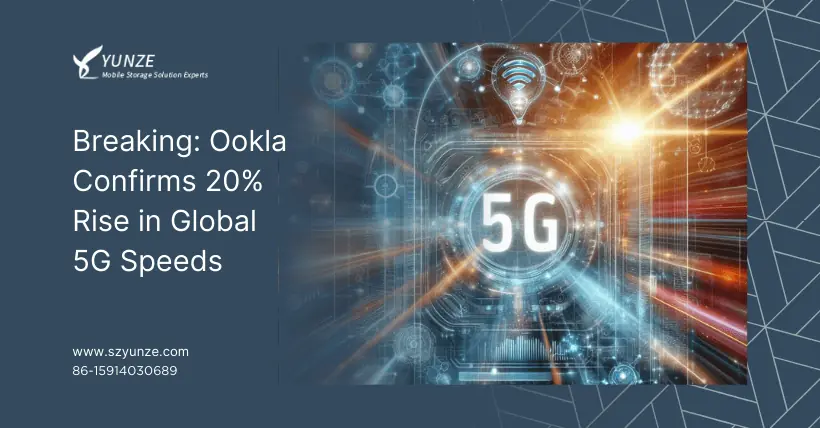The intelligence company Ookla has provided some new insights into the current global status of 5G networks. According to its latest ‘Global State of Connectivity’ report, the median global 5G download speed increased by 20% in the third quarter of 2023. The company recorded a median global 5G download speed of 203.04 Mbps in the third quarter of 2023, a significant improvement compared to 168.27 Mbps in the third quarter of 2022.
Furthermore, the download speeds of the top 10% of users in global 5G speed rankings increased by 9%, rising from 525.54 Mbps (third quarter of 2022) to 573.12 Mbps (third quarter of 2023).
However, this time, the country ranking first shifted from South Korea to the United Arab Emirates, while Malaysia, India, and the Dominican Republic also made ‘significant progress.’ The top ten ranking countries also include Malaysia, Qatar, Brazil, the Dominican Republic, Kuwait, Macau, Singapore, and India.

The current front-runner, the United Arab Emirates, saw a 14% increase in median 5G download speed. Its data soared from 511.68 Mbps in the third quarter of 2022 to 592.01 Mbps in the third quarter of 2023. Meanwhile, the second-ranked South Korea achieved a median 5G download speed of 507.59 Mbps in the third quarter.

Ookla states that one of the key factors contributing to the success of the United Arab Emirates is the ‘intense market competition driven by Etisalat and du,’ which has led to an improvement in the nationwide 5G coverage. This escalating competition was also one of the reasons why the UAE retained its top spot in the second quarter of 2023, reaching a median download speed of 557.63 Mbps.
The company points out that in 2022, half of the countries in the top ten rankings were from the Middle East, whereas now the Asia-Pacific region holds an equal share. Despite the capability of 5G to provide peak data transfer rates of up to 20 Gbps, the actual ‘speeds have yet to reach gigabit levels, primarily due to network economics.’
Ookla states, ‘For instance, symmetrical download/upload speeds and ultra-low latency have not been achieved, partly because the vast majority of 5G networks are not ‘true 5G’ as they are deployed in non-standalone (NSA) mode, meaning they rely on 4G LTE network cores.’

On the other hand, the median upload speed for 5G has increased by only 1% compared to last year’s data. The report also discusses improvements in the performance of global wired fixed connections. While the speeds of fixed broadband connections are not on par with 5G, they have seen similar enhancements.
In the third quarter of 2023, the median speed of global fixed networks was 83.95 Mbps, a 19% increase from 70.30 Mbps in the third quarter of 2022. The United Arab Emirates also holds a leading position in this regard, with a median download speed of 247.63 Mbps. Ookla indicates that despite continuous advancements in basic broadband technology, WiFi often becomes a bottleneck, diminishing the customer experience.
Research suggests that in a market where advanced cable and fiber connections are replacing traditional broadband technologies such as DSL or coaxial cable, the performance of WiFi might lag behind Ethernet. Wi-Fi speeds are typically at 30-40% of Ethernet speeds, indicating the need to expedite the adoption of more advanced Wi-Fi technology and optimize home network environments.
Related:
- SSD Health Check: Predict Its Lifespan with Tools!
- Japan Semiconductor Design Market Share Drops to 9%
- Foxconn Q1 Revenue Drop: iPhone Demand Decline
- Apple Fans Rejoice: Major iPhone Repair Update!
- 2025 Semiconductor Memory Sales Outlook Cut by Analysts
- SEMICON Korea 2025: February 19-21 in Seoul’s COEX
- $35 Billion AI Data Center in South Korea: A 2025 Launch

Disclaimer:
- This channel does not make any representations or warranties regarding the availability, accuracy, timeliness, effectiveness, or completeness of any information posted. It hereby disclaims any liability or consequences arising from the use of the information.
- This channel is non-commercial and non-profit. The re-posted content does not signify endorsement of its views or responsibility for its authenticity. It does not intend to constitute any other guidance. This channel is not liable for any inaccuracies or errors in the re-posted or published information, directly or indirectly.
- Some data, materials, text, images, etc., used in this channel are sourced from the internet, and all reposts are duly credited to their sources. If you discover any work that infringes on your intellectual property rights or personal legal interests, please contact us, and we will promptly modify or remove it.



